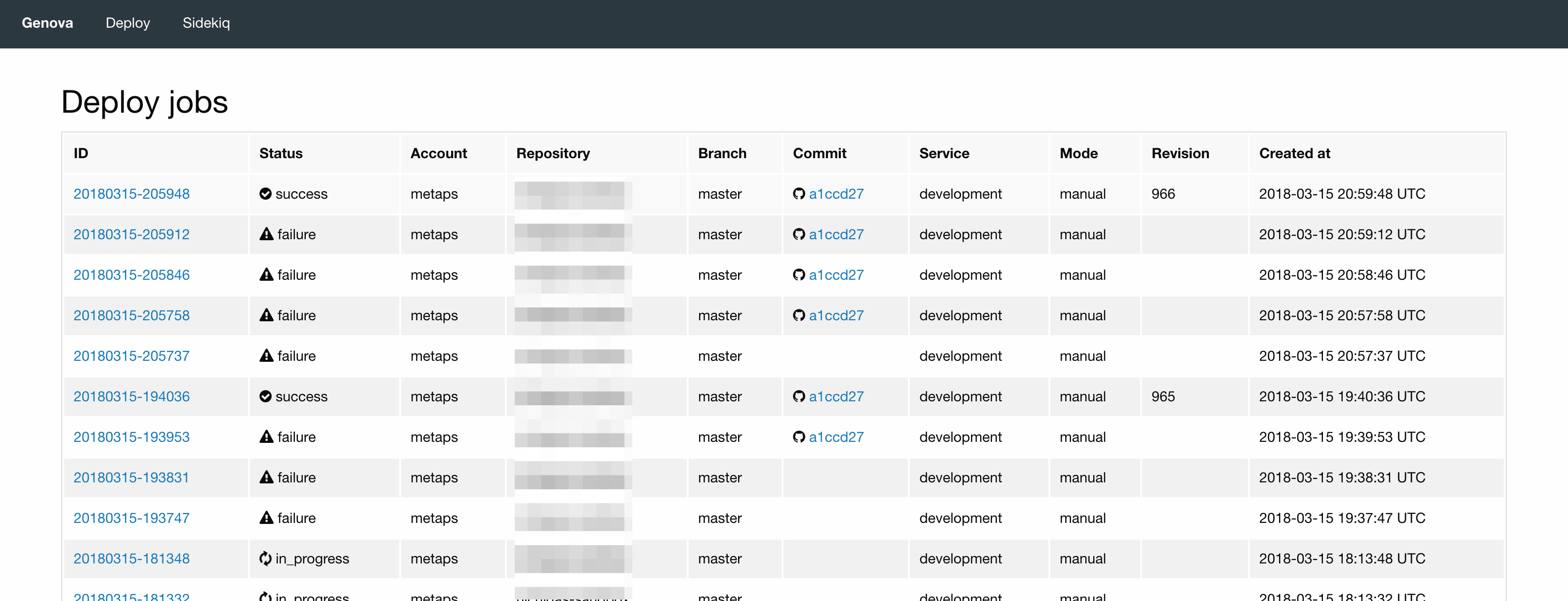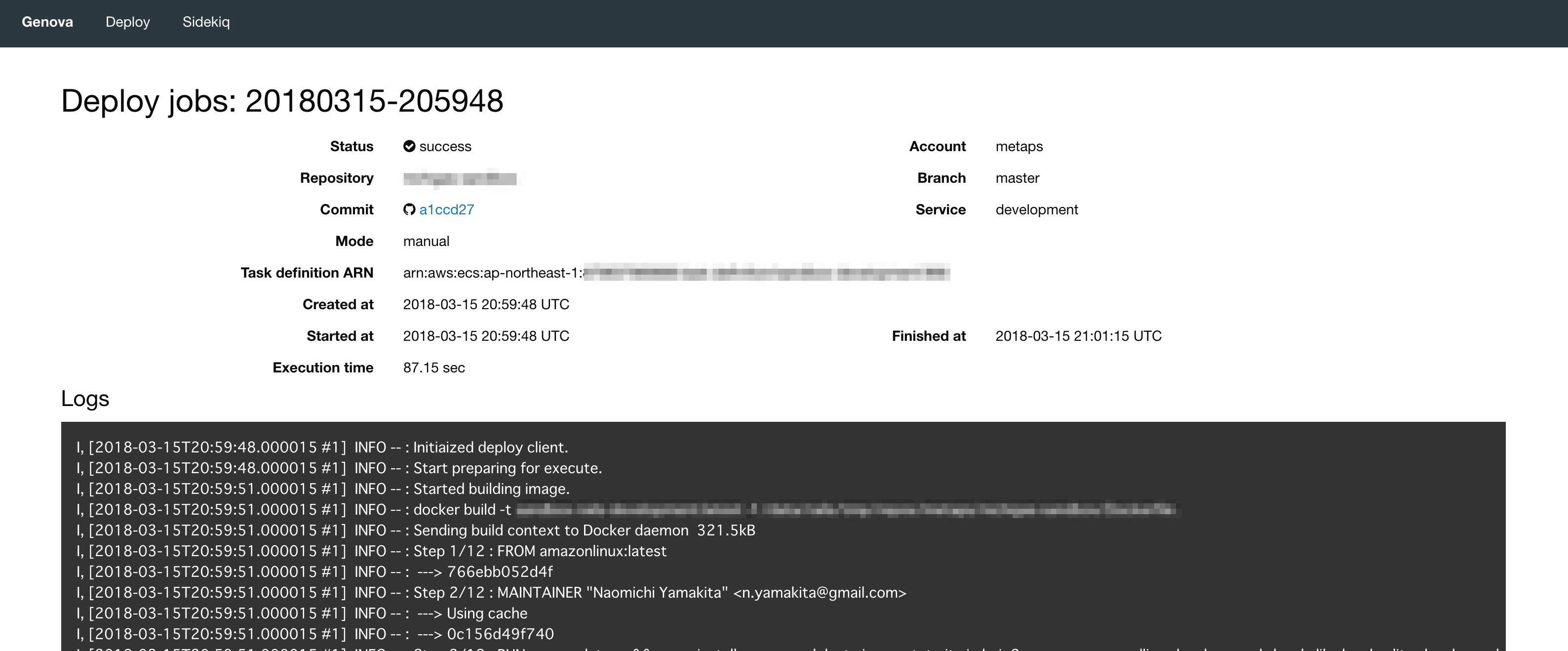genova provides the ability to deploy and manage applications to Amazon ECS.
By using genova, you can deploy services, execute arbitrary tasks, and execute scheduled tasks. In addition to command line deployment, genova supports interactive deployment via Slack, deployment triggered by push using GitHub Webhook, and CI/CD integration using GitHub Actions.
genova has the following features.
- YAML-based task definitions
- Some deployment flows
- Deploying from the command line
- Interactive deployment using Slack
- Deploying using GitHub Actions/Webhooks
- Provides a web console to manage deployment status
genova requires you to build and run a server in your local environment or in an AWS environment. When a deployment is requested, the following steps will be taken to deploy the application.
- Acquire the repository to be deployed.
- Obtain the Dockerfile and the deployment configuration file (
config/deploy.yml) in the repository. - Build the Dockerfile based on the deployment configuration file.
- Push the created image to AWS ECR.
- Define tasks based on the task definition file (
config/deploy/xxx.yml). - Register the created task definitions to Amazon ECS.
- Update the service or scheduled task. if it is a Run task, execute the task.
The AWS resources (services and scheduled tasks) to be deployed must be created in advance.
genova will clone your repository to build and deploy your application. Your repository should have the following files in it.
|- config/
│ # Deploy configuration file.
├ deploy.yml
└ deploy/
│ # Creates a task definition file based on the deployment configuration file.
│ # Give it any name you like (e.g. production.yml).
└ xxx.yml$ git clone https://github.com/metaps/genova.git
$ cd genova
# Register the private key you need to clone the repository from GitHub.
$ vi .ssh/id_rsa
$ chmod 400 .ssh/id_rsa
# In settings.local.yml, you can customize the behavior settings of genova.
$ cp config/settings.yml config/settings.local.yml
# The .env file defines the configuration for starting genova.
$ cp .env.default .env
$ docker-compose build
$ docker-compose upOnce the container has started, go to http://localhost:3000/, which should bring up the genova web console.
The web console allows you to check the status and history of the deployment.
If you allow access to the web console via the Internet, be sure to restrict the accessible members via ALB (Amazon Cognito or IP authentication) or proxy.
However, if you are deploying Slack/GitHub integration, do not restrict the /api/* path as it accepts callbacks.
the API uses its own authentication logic to restrict the requestor.
See the Wiki.



